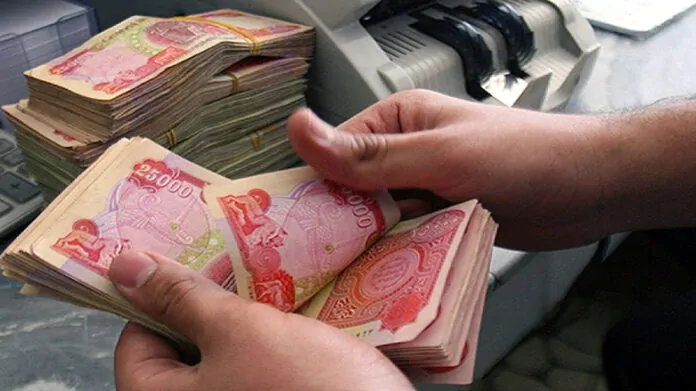Nabil Al-Marsoumi, an economist from Iraq, confirmed on Saturday that the national economy would suffer severely if the price of Iraqi crude oil fell to $70 per barrel.
According to Al-Marsoumi, “With oil prices falling and oil exports declining to 3.3 million barrels per day, monthly oil revenues would drop to 9 trillion dinars, of which one trillion would cover the costs of oil licensing companies, leaving just 8 trillion dinars to finance various salaries totaling 7.5 trillion dinars monthly.” Al-Marsoumi made this statement.
He continued, “The ration cards would be funded with half a trillion dinars, with the remaining operational and investment expenses being covered by scarce non-oil revenues and domestic and external borrowing.”
Moreover, Al-Marsoumi anticipated that “charges, expenses and obligation would rise, and unfamiliar stores in the National Bank of Iraq (CBI) would confront critical strain, especially without any a sovereign abundance reserve.
He added, “If the barrel price remains in the $70 range for six months, the Ministry of Finance might struggle to fund salaries, potentially leading to delays or reductions in salaries.”
The prices of Basra heavy and medium crude oil plunged by 7.90% and 7.60%, respectively, last week, representing significant weekly losses. The medium Basra closed at $71.76, also up 40 cents, and the heavy Basra closed at $68.76.
Worldwide oil costs additionally saw sharp week by week misfortunes, with West Texas Halfway falling by 7.9% and Brent unrefined by more than 7.6%, in the midst of expectation of OPEC+ choices.
Due to fluctuations in oil prices, Iraq’s economy, which is heavily dependent on oil revenues, faces significant obstacles. Financial experts and the Parliamentary Money Council forewarned that delayed low oil costs could fuel the spending plan shortfall and effect speculation and functional spending plans.
Moreover, specialists featured the requirement for monetary expansion and elective income sources to address the impacts of oil cost unpredictability. The job of OPEC+ in balancing out oil costs is thought of as significant for keeping up with Iraq’s income and spending plan soundness.





